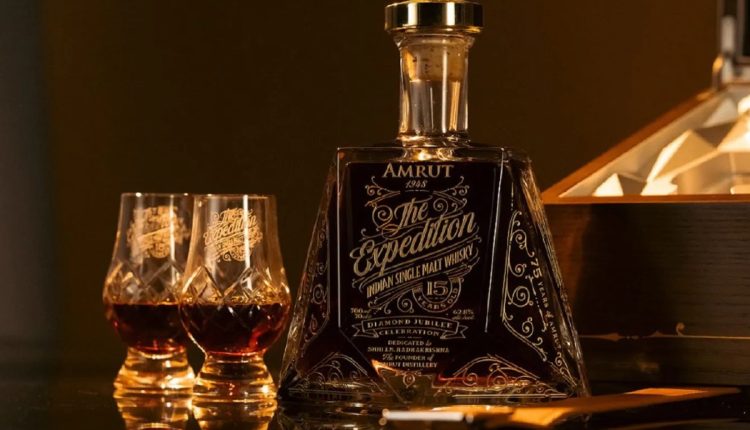India’s whisky landscape has seen a revolution—and at the heart of this transformation lies Amrut Distilleries, the pride of Indian whisky lovers across the globe. Established in 1948 by J.N. Radhakrishna Rao Jagdale, this family-run brand has grown from a small Bangalore-based distillery into a name that resonates across continents.
Let’s uncork the story of how the Jagdale family turned Amrut into one of the finest whisky producers in the world.
The Humble Origins of Amrut Distilleries
Founded just after India’s independence, Amrut Distilleries started off by blending and bottling whisky for local markets. The visionary behind this brand, J.N. Radhakrishna Rao Jagdale, laid a strong foundation with quality, ethics, and consistency as its core principles.
In 1976, his son Neelakanta Rao Jagdale inherited the reins of the business. But instead of staying confined to traditional liquor production, he saw the untapped potential of Indian single malts—a category then virtually nonexistent in the country.
Breaking Boundaries: The Birth of Indian Single Malt
In the 1980s, Amrut made a bold move: they began experimenting with malt whisky production. While the Indian market was still consumed with molasses-based spirits, Amrut was quietly laying the foundation for a revolution.
Fast forward to 2004: under the leadership of the third-generation visionary Rakshit Jagdale, Amrut launched India’s first single malt whisky in Glasgow, Scotland. Whisky experts in the birthplace of Scotch were stunned. The verdict? Indian whisky had arrived—and how!
Global Recognition and International Awards
Amrut didn’t just stop at making history—it dominated it. Here’s a glimpse at the international stage where Amrut shone the brightest:
-
Amrut Fusion: Rated 97/100 and declared the third-best whisky in the world by Jim Murray’s Whisky Biblein 2010.
-
San Francisco World Spirits Competition 2025: Won three Double Gold medals and one Gold, placing it among the world’s elite whisky brands.
-
World Whiskies Awards 2025: Amrut Peated Cask Strength declared the Best Indian Single Malt.
-
International Spirits Challenge 2024: Five Gold Medals in the World Whisky category—unprecedented for an Indian brand.
Amrut didn’t just impress connoisseurs—it made India proud on a global platform.
What Makes Amrut Whisky Unique?
Indian Barley with a Tropical Edge
Unlike traditional Scotch that uses two-row barley, Amrut uses six-row Indian barley sourced from the Himalayan plains, which imparts a distinct earthy character.
Climate Advantage
Bangalore’s tropical climate accelerates whisky maturation. In Scotland, aging takes over a decade. In India? Just 3–5 years can achieve similar depth due to higher temperatures and humidity.
Fusion of Cultures
The brand’s signature whisky, Amrut Fusion, is a blend of Indian and Scottish barley. This east-meets-west harmony gives it a truly global flavor that appeals to diverse palates.
A Brand That Paved the Way
Amrut’s success inspired the birth of many other Indian single malts, including brands like Paul John and Rampur. But Amrut remains the trailblazer, the pioneer that put Indian whisky on the global spirits map.
From blending basic liquors in post-independence India to winning hearts in Scotland, USA, and Japan—Amrut’s journey is not just about whisky. It’s about vision, tradition, and relentless pursuit of excellence.
Must-Try Amrut Whiskies
Here are some top expressions from Amrut you must try:
-
Amrut Fusion Single Malt
-
Amrut Peated Cask Strength
-
Amrut Naarangi (with orange peel influence)
-
Amrut Madeira Finish
-
Amrut Triparva (India’s first triple-distilled whisky)
Each bottle tells a story—of heritage, innovation, and India’s place on the world stage.
Final Pour: A Legacy Worth Celebrating
Amrut Whisky by Jagdale isn’t just a product—it’s a legacy, a movement, and a toast to India’s craftsmanship. Whether you’re a whisky enthusiast, a curious traveler, or a proud Indian, Amrut offers something that’s deeply flavorful and truly world-class.
So the next time you’re selecting a fine bottle of whisky, make it Indian. Make it Amrut.


Comments are closed.